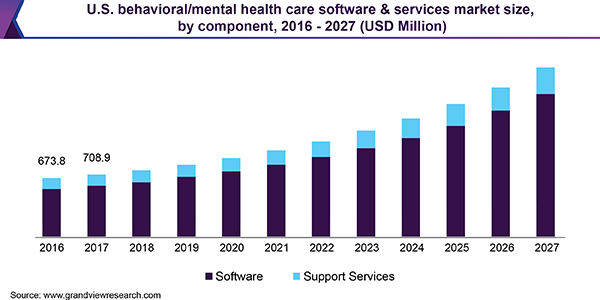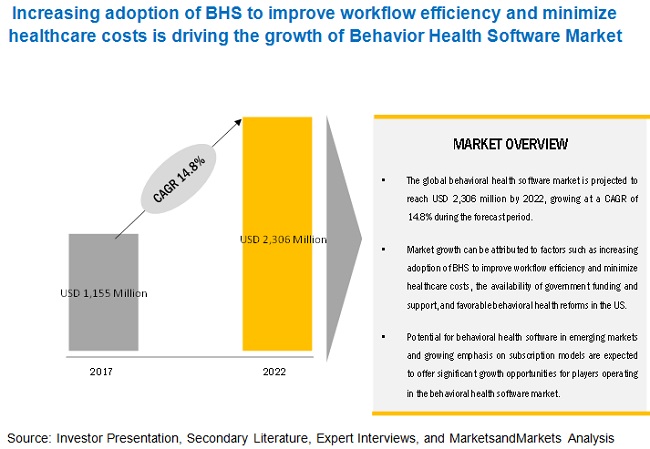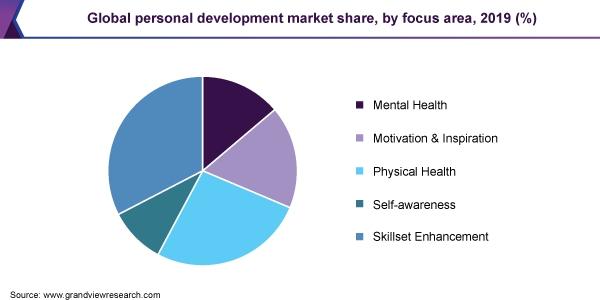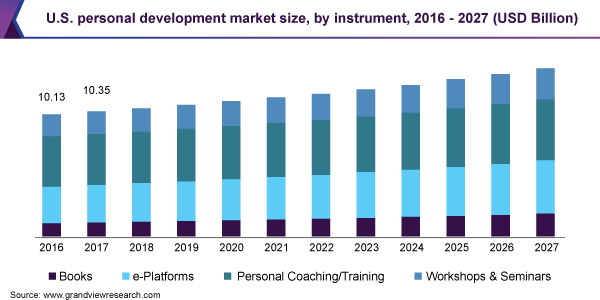Part
01
of five
Part
01
Mental Wellbeing Market Size
Research Strategy
- Our preliminary research indicated that mental wellness, mental health, and mental wellbeing have been interchangeably used in the business market sector. Although there have been many commonalities amongst the three terms, the services offered for mental health and mental wellbeing are relatively different. In fact, according to the Healthy Lifestyle Blog, it has been reported that health experts have considered new terminologies for mental health to develop a clearer difference between mental health and mental illness. The terminologies for mental health which are often used interchangeably include ‘positive mental health’, ‘mental wellbeing’, and ‘subjective wellbeing’.
- Services that ensure positive mental wellbeing include adequate sleep, making time for oneself, being active, managing stress, having a healthy diet, building confidence, having social company, setting realistic goals, and asking for help when needed.
- In this research, we focused on identifying the market size of services/industries that cater to mental wellbeing or mental wellness. The services include coaching/counseling or courses or applications/softwares' which are meant to take people on a journey to clarity, confidence, mindfulness, happiness, and masterful leadership, etc. We excluded statistics related to mental well-being market estimates including healthcare products for mental wellbeing.
- Market sizing statistics pertaining to the mental wellbeing industry have been limited, of which, the most credible sources have been cited in this report. Given that the information was limited, we only cited sources that were associated with mental health services including coaching, courses, applications, tech-based software, and telehealth. Further, to provide context to the mental wellbeing market, we briefly covered market trends and consumer research statistics.
Market Size
- According to PRNewswire Market Research, the Mental Health Apps market accounted for USD 587.9 Million in 2018 and is projected to generate a revenue of USD 3,918.40 Million by 2027, with a growth rate of 23.7% between the forecast period (2019 to 2027).
- The North American region including the United States and Canada holds the majority market share of the mental health apps market in 2018, driven primarily by mainstream awareness related to mental health.
- The Asia Pacific region is expected to grow at the fastest speed during the forecast period (2019-2027) pertaining to the increasing population and growing adoption of Android and iOS platforms.
- Key players operating in the global mental health apps market space include Addicaid, Aurora Health Care, Calm, MoodTools, NOCD Inc., Recovery Record, Sanvello (Pacifica Labs, Inc.), Happify, Inc., HEADSPACE INC., Mayo Foundation for Medical Education and Research (MFMER), Mindshift Interactive, and others
- Key driving factors for the mental health apps market include (i) global stigma in the societies related to visiting a psychiatrist for receiving mental health treatment; (ii) convenience; and (iii) growing adoption of Android and iOS platforms.
- The Global Wellness Institute (GWI) conducts detailed market research into different sectors of the wellness industry, which also includes the mental wellbeing market. Outlined below are the four sub-markets of mental wellness. The first two market segments are relevant to this research, the latter two can be segments that have been highlighted for relative comparison within market sub-segments.
- (I) Self-improvement: The category ranges from self-help tuition delivered by life coaches or organizations (via workshops or retreats to brain training services and online platforms combating loneliness and isolation. Self-improvement therapy is largely delivered via services including self-help gurus & personalities, self-help organizations/institutions , self-help coaching and therapy apps , brain training , anti-loneliness apps and technology. The segment is estimated to have a market size of worth USD 33.6 billion.
- (II) Meditation and mindfulness: According to the GWI Research, the market segment has been described as the smallest sub-category, which covers studios, centers, teachers, breathwork, retreats, apps, journals, and wearables. The market size is currently estimated at USD 2.9 billion.
- (III) Sense, spaces, and sleep market: The data indicates sense, spaces, and sleep market is the largest mental wellness sector. The industry provides an array of sleep-optimising solutions with estimated market size of USD 49.5 billion.
- (IV) Brain-boosting nutraceuticals and botanicals: the category notably includes the rise of plant-based drugs used for mental wellness, such as CBD, functional mushrooms, and psilocybin, which has undergone a rapid acceleration in clinical research, and currently estimated at a market size of USD 34.8 billion
- Other related Mental Wellbeing/Wellness Industry Market Sizes include:
- Preventative and Personalized Medicine and Public Health Wellness Industry: USD 575 billion.
- Fitness and Mind-Body Industry: USD 595 billion.
- Workplace Wellness Industry: USD 48 billion.
- Traditional and Complementary Medicine: USD 360 billion.
Mental Health and Wellness Market Trends
- The Global Wellness News indicates growing evidence regarding the adoption of self-care practices, such as meditation, light therapy, and circadian science, bolstered by an acceleration of public and private research investment.
- According to the news, the Global Wellness Institute research indicated that mental health and mental wellness tech startups have become a major target for investors. Investment levels reached USD 750 million in 2019, a five-fold increase over 2014, while funding has topped USD 1 billion in the first half of 2020.
- Notable winners have been meditation and sleep apps including (I) Headspace, which in June 2020 added USD 47.7 million to its earlier USD 93 million raised in February 2020; and (II) Calm, which is targeting investment that would double its valuation to USD 2.2 billion.
- The growing number of telehealth and teletherapy startups, such as California-based Lyra Health, which hit a USD 1.1 billion valuations in August, are helping plug gaps in traditional public healthcare services.
Statistics related to Consumer Market Research:
The consumers for mental health or wellbeing are defined as individuals who seek treatment, help, or services to treat, cure, or prevent mental illness. This also includes individuals who engage in activities to maintain positive mental wellbeing to avoid mental ill-health. The World Health Organization estimates statistics related to the demographics and the burden of mental health and wellbeing.
- The global economy loses about US$ 1 trillion per year in productivity due to depression and anxiety.
- Mental, neurological, and substance use disorders make up 10% of the global burden of disease and 30% of non-fatal disease burden.
- Depression is one of the leading causes of disability, affecting 264 million people.
- About half of the mental disorders begin before the age of 14.
- Almost 800,000 people die by suicide every year; 1 person dies from suicide every 40 seconds. Suicide is the second leading cause of death in individuals aged 15-29 years.



